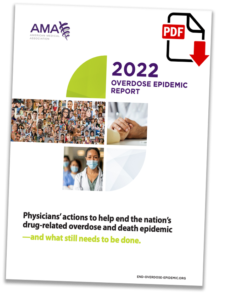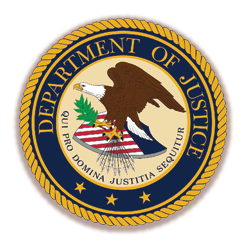
October 2022
The following are several drug diversion news stories that have captured our industry’s attention.
Company pays close to $160,000 for thefts from pharmacies during inventory
Inventory management company RGIS, LLC, and its affiliated company WIS agreed to pay $158,760 on charges that they violated the Controlled Substances Act by taking controlled substances from several pharmacies. The announcement was made by the U.S. Attorney for the Northern District of New York and the New York Division DEA. RGIS, LLC provides inventory services throughout the U.S. As part of the settlement, the company will change their policies to require more thorough vetting of employees assigned to inventory pharmacies nationwide.
Authorities arrest anesthesiologist accused of tampering with IV bags
Dallas police arrested Raynaldo Rivera Ortiz, Jr., a former anesthesiologist charged with tampering with IV bags at a North Dallas surgical center. Ortiz was caught on video allegedly stealing the bags, which were found to be filled with bupivacaine, a topical anesthetic known to be toxic if injected into the bloodstream. These were linked to the death of a fellow physician and at least seven cases of life-threatening emergencies to other patients receiving care at the facility. His practice license has been suspended as he awaits further charges.
Former student nurse pleads guilty after stealing, injecting herself with fentanyl
A Florida nurse pleaded guilty to multiple counts of drug diversion at two different Boston-area hospitals. While serving as a student nurse in 2018, Lisa Tarr admitted to stealing fentanyl from one hospital for personal use. Two years later, at a different hospital, Tarr stole an infusion bag of the same drug from a patient before taking multiple syringes of hydromorphone from a locked cabinet. She faces up to four years in prison.
Florida nurse arrested for second time following accusations of stealing medication
Desiree Lato was arrested after being accused of stealing medications from a Jacksonville, Fla. hospital. The hospital pharmacy began investigating Lato after finding several suspicious medical transactions from an automated dispensing cabinet (ADC). A surveillance video, as well as a tainted urine test, later helped investigators determine her culpability. Following her arrest, authorities found that Lato was out on bond for a similar incident at her former employer, a medical center in neighboring Orange Park.
White House drug czar says stigma is key culprit in addiction crisis
The director of the White Hours Office of National Drug Policy, Rahul Gupta, M.D., claimed that stigma prevent physicians and other healthcare workers from getting addiction treatment, contributing to the ongoing opioid crisis. Dr. Gupta added that some in the medical profession were hesitant to provide access to drugs like methadone and buprenorphine, because they are not widely understood. He mentioned that the government was funding multiple strategies, from harm reduction to contingency management in combatting dependency on the substances.
Hawaii nurse charged with theft of fentanyl, other drug offenses
Officials arrested Allison Elizabeth Kawamura, a former nurse at Hilo Medical Center in Hawaii, on charges of prescription drug theft and felony drug possession. The charges arose from two separate incidents that were reported by the hospital in April 2022. Kawamura posted bail and is now out of jail, but she will face trail in December.

Reductions in opioid prescribing have not led to decrease in drug-related mortalities
 The American Medical Association (AMA) released its annual opioid epidemic report which found that despite the reduction in prescribing of opioids, deaths and overdoses from illegally acquired drugs increased. Drug-related mortalities were more likely to occur among Black individuals, followed by American Indian/Alaskan Natives, from 2019-2021. In the report, the AMA advocated for greater access to treatment medications like buprenorphine, harm reduction programs like syringe services and naloxone distribution, and removing barriers to evidence-based care by “rescinding arbitrary laws and policies focused on restricting access to multidisciplinary, multimodal pain care.”
The American Medical Association (AMA) released its annual opioid epidemic report which found that despite the reduction in prescribing of opioids, deaths and overdoses from illegally acquired drugs increased. Drug-related mortalities were more likely to occur among Black individuals, followed by American Indian/Alaskan Natives, from 2019-2021. In the report, the AMA advocated for greater access to treatment medications like buprenorphine, harm reduction programs like syringe services and naloxone distribution, and removing barriers to evidence-based care by “rescinding arbitrary laws and policies focused on restricting access to multidisciplinary, multimodal pain care.”

Yale University to pay over $300K for failing to comply with CSA
Yale University agreed to pay $308,250 to resolve allegations that it failed to comply with the Controlled Substances Act (CSA) following a drug diversion incident at Yale Fertility Center. Nurse Donna Morticone was found to have tampered with several patients’ pain medication while they undertook fertility treatments at the facility. Following Morticone’s arrest and guilty plea, an investigation found a staggering 685 discrepancies in recordkeeping. Results from the search also found that Yale failed to properly maintain an inventory of controlled substances, records of their destruction, and forms needed for their purchase and sale.

DDWatch highlights individuals who promote excellence in the business world. Their stories and leadership experience are what inspires others and move them to action.
Nurses need a safe environment to reduce risk of diversion
 Claire began her career in nursing shortly before the pandemic hit. As a fourth-generation nurse, she grew up hearing stories about patients and the clinical floor from her mother, grandmother, and great-grandmother. When she graduated from nursing school, she took a job at a city hospital, looking forward to focusing on her specialty as an ear, nose, and throat nurse.
Claire began her career in nursing shortly before the pandemic hit. As a fourth-generation nurse, she grew up hearing stories about patients and the clinical floor from her mother, grandmother, and great-grandmother. When she graduated from nursing school, she took a job at a city hospital, looking forward to focusing on her specialty as an ear, nose, and throat nurse.
But when the COVID-19 pandemic occurred, Claire suddenly found herself treating an overflow of patients from the intensive care unit. For a time, it seemed like the number of COVID patients coming to her floor would never end. Suddenly, she and other nurses had to learn how to treat patients with a condition they had never seen before or knew how to care for.
“The sheer number of patients was overwhelming,” said Claire. “On top of that, we had to contend with a shortage of protective equipment, like masks. If we had any, we often had to hold onto them longer and beyond their efficacy.”
The volume of patients and the intense care that came with it created nearly unbearable levels of stress for Claire and her co-workers. With that came rumors of “unthinkable things,” as Claire described them.
“We started hearing about nurses on other floors of the hospital being caught in questionable situations with drugs,” she said. “Luckily, I never witnessed one, but I can imagine that the high stress environment exacerbated issues for those who suffered from substance abuse issues.”
Claire added that since so many healthcare workers have easy access to medications, it can make addiction problems worse. She recognized everyone in the hospital – from the pharmacy to nurses and even administration – must be on the same page about finding a solution to medication theft.
“It’s important for hospitals to look for the root cause of the problem, rather than just targeting it,” she said. “There’s obviously something triggering these individuals to take the medications.”
In nursing school, Claire remembers learning about drug diversion, but it was at an introductory level. While professors discussed how medication theft affected patients — and the consequences of stealing — it wasn’t until she worked in the hospital that she understood the conditions that could lead a person to take such drastic measures.
“We didn’t realize the impact stress, anxiety, and uncertainties could have on the diverter,” she said. “Accountability is important, but I think it’s also critical to look at the reasons why drug diversions occur. These healthcare workers need to be able to feel safe enough to ask for help. Otherwise, they could go back to taking patient medications, potentially losing their license, serving jail time, or possibly losing their lives.”
Looking back on the time she spent caring for patients at the height of the pandemic, Claire is thankful that she was able to manage these stressful conditions. Not everyone, however, was as lucky.
“Nursing is hard work and sometimes, it can be thankless,” she noted. “Few of us can manage the long hours and sleepless nights. But because our job is critical to society, it’s also important for hospital administration to provide an environment where nurses can safely seek out help before it’s too late, and before drug diversion becomes the norm.”
###


